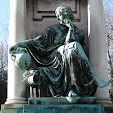 ... that is: I am back home. The pendant is not a returnee - its identical twin was stolen from the Carolina Inn this summer, but I contacted the jeweler (Karen McCreary, from Long Beach), who very kindly made me another - and it's just arrived. It's just the same - but of course not - and actually, it does differ, away from sight, because the metals round the back have, I think, greenishly oxidised, which is very attractive - like leaves. But then - might the original one have been tinted in this veridian way, too, but I just can't remember, and of course now can't check. And can I love it in the same way as the original, which Alice gave me a couple of birthdays back? (probably not - but I can admire it as much). And will anyone seeing it (who hasn't read this post, and who remembers the other one) ever think that there's any difference? Can one replace a lost piece of personal jewelry, ever? The scene in Jonathan Franzen's Freedom, incidentally, that involves hunting for a lost wedding ring is one of the funniest pieces of quite gross humor that I've read for a while, and inadvisable to encounter on an airplane.
... that is: I am back home. The pendant is not a returnee - its identical twin was stolen from the Carolina Inn this summer, but I contacted the jeweler (Karen McCreary, from Long Beach), who very kindly made me another - and it's just arrived. It's just the same - but of course not - and actually, it does differ, away from sight, because the metals round the back have, I think, greenishly oxidised, which is very attractive - like leaves. But then - might the original one have been tinted in this veridian way, too, but I just can't remember, and of course now can't check. And can I love it in the same way as the original, which Alice gave me a couple of birthdays back? (probably not - but I can admire it as much). And will anyone seeing it (who hasn't read this post, and who remembers the other one) ever think that there's any difference? Can one replace a lost piece of personal jewelry, ever? The scene in Jonathan Franzen's Freedom, incidentally, that involves hunting for a lost wedding ring is one of the funniest pieces of quite gross humor that I've read for a while, and inadvisable to encounter on an airplane. And I wept at the end of the novel, too - which probably means that I should always stick to mysteries and history books: I thought I learned my lesson about this long, long ago in an incident involving Mrs Humphry Ward's Helbeck of Bannisdale on the London Tube. I cannot, now, remotely remember why (or indeed, remember anything about the novel) - which propels me to recommend the essay by James Collins in today's NYT Book Review, on why one should bother with reading novels (or for that matter, history), if one forgets the contents and forgets the plot. It makes a convincing case, however, for the difference between what Maryanne Wolf, quoted here, calls "immediate recall of facts and an ability to recall a gestalt of knowledge. We can't retrieve the specifics, but to adapt a phrase of William James's, there is a wraith of memory. The information you get from a book is stored in networks ... It is in some way working on you even though you aren't thinking about it." That's a consolation ... The wraith, by the way, is, I think, the wraith of Emerson that hovers over Concord on the centenary of his birth - an event marked there by an address by WJ.


No comments:
Post a Comment